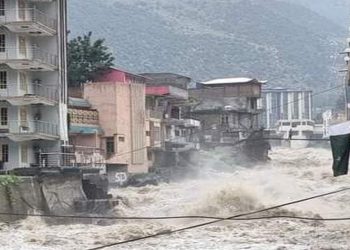FATF’s final deadline
Related Stories
Trending Stories
Opinion
June 29, 2025
- Munir Ahmed
June 28, 2025
- Munir Ahmed
June 27, 2025
- Munir Ahmed
No posts found
Weather forecast for Karachi today
The Pakistan Meteorological Department (PMD) has predicted partly cloudy and humid weather for Karachi...
Govt end electricity duty from power bills
Federal Minister for Energy Awais Leghari has formally requested all provincial governments to eliminate...
Rs150 billion approved to make Rawalpindi a ‘signal-free’ city
The Punjab government has approved a record-breaking development package worth Rs.150.0 billion for Rawalpindi...
MM Digital (Pvt.) Ltd.
MM News is a subsidiary of the MM Group of Companies. It was established in 2019 with the aim of providing people of Pakistan access to unbiased information.
Contact Details: 03200201537



























